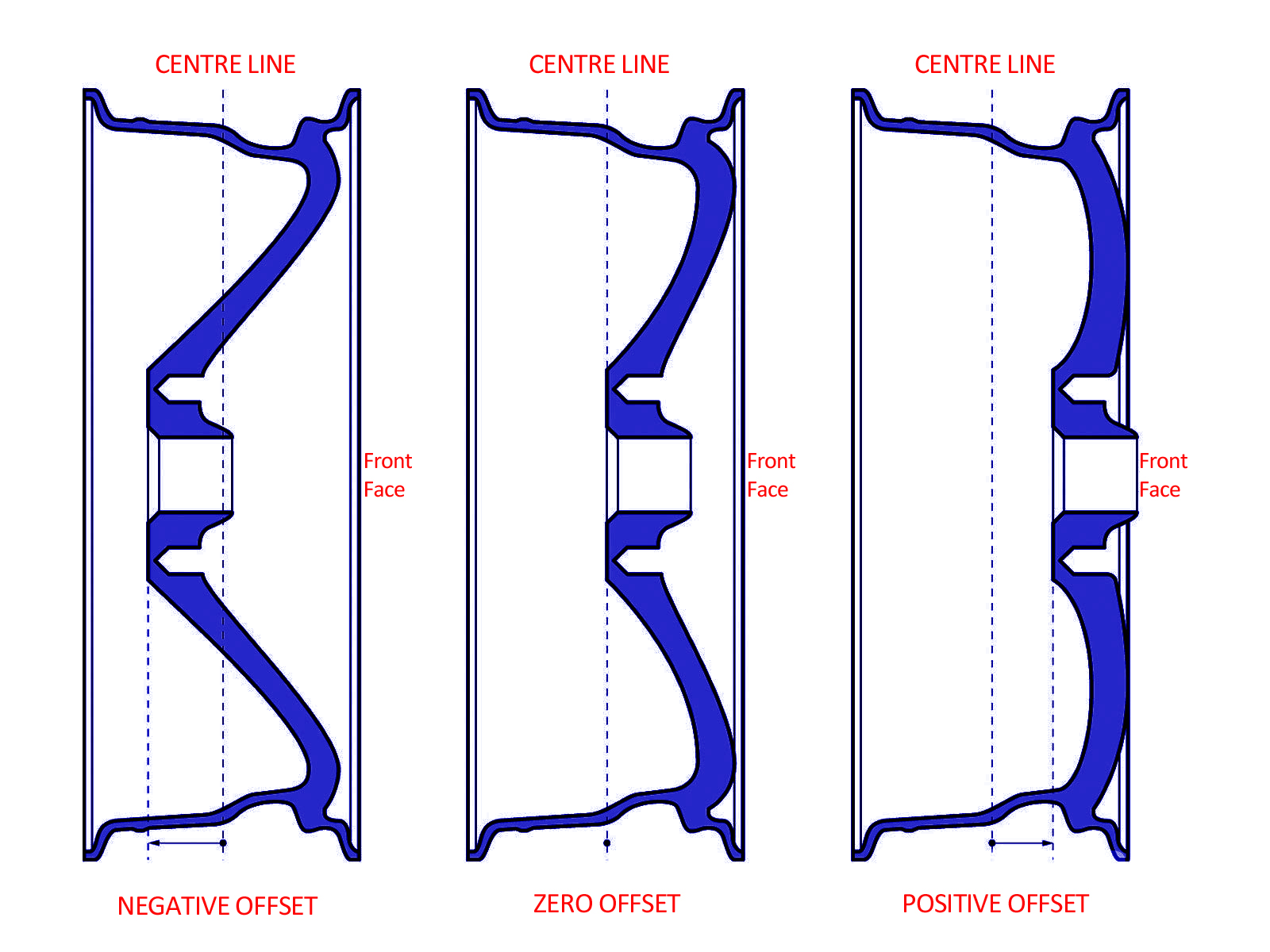What are offset Alloy wheels

Discover the role and impact of offset in alloy wheels and how it affects your vehicle's performance.
Understanding Wheel Offset: Definitions and Basics
Offset in alloy wheels refers to the distance between the wheel's mounting surface and the centerline of the wheel. It determines how the wheel and tire assembly fits within the wheel well of a vehicle.
Positive offset means that the mounting surface is closer to the outside edge of the wheel, resulting in the wheel being pushed further into the wheel well. Negative offset means that the mounting surface is closer to the inside edge of the wheel, causing the wheel to stick out from the wheel well.
Understanding wheel offset is essential when selecting new alloy wheels for your vehicle to ensure proper fitment and avoid clearance issues with suspension components or bodywork.
The Importance of Offset in Alloy Wheels
The offset of alloy wheels plays a crucial role in the overall performance of your vehicle. It affects various aspects such as handling, steering response, and stability.
Proper offset ensures that the wheels are positioned correctly in relation to the suspension components and the body of the vehicle. This alignment optimizes the vehicle's balance and weight distribution, resulting in improved handling and stability.
Moreover, the right offset prevents interference between the wheels and brake components, preventing any potential damage or performance issues.
Choosing alloy wheels with the correct offset for your vehicle is essential to ensure optimal performance and safety on the road.
How to Determine the Right Offset for Your Vehicle
Determining the right offset for your vehicle involves considering various factors, including the vehicle's make, model, and suspension setup.
One way to determine the appropriate offset is by referring to the manufacturer's specifications. These specifications often provide recommended wheel sizes and offsets that are compatible with your vehicle.
Another method is by consulting with a knowledgeable professional or utilizing online resources that provide fitment guides and calculators. These tools take into account the vehicle's specifications and provide recommendations for suitable wheel offsets.
It's important to note that modifying the offset from the manufacturer's recommended specifications can have implications on the vehicle's performance and safety. It's crucial to exercise caution and seek expert advice when considering offset modifications.
Impact of Incorrect Offset on Vehicle Performance
Using alloy wheels with an incorrect offset can have significant consequences on your vehicle's performance and safety.
If the offset is too low (negative), the wheels may protrude outwards, leading to clearance issues with the suspension components or bodywork. This can result in rubbing or scraping, causing damage to the tires, wheels, or other vehicle parts.
On the other hand, if the offset is too high (positive), the wheels may be positioned too far inward. This can negatively affect the vehicle's stability, handling, and steering response, compromising overall safety and performance.
It's crucial to select alloy wheels with the correct offset to ensure proper fitment and avoid any adverse effects on your vehicle's performance and safety.
Choosing the Best Offset Alloy Wheels for Your Car
When choosing offset alloy wheels for your car, several factors need to be considered.
First, determine the appropriate offset range recommended for your vehicle based on its make, model, and suspension setup. This information can usually be found in the owner's manual or obtained from the manufacturer.
Next, consider your desired wheel fitment. If you prefer a more flush or aggressive look, you may opt for a slightly lower offset. However, it's crucial to ensure that the chosen offset still falls within the recommended range to avoid any clearance or performance issues.
Additionally, factor in the wheel width and tire size when selecting the offset. Wider wheels and larger tires may require different offsets to maintain proper clearance and fitment within the wheel well.
Lastly, consider the specific design and style of alloy wheels that complement your car's aesthetics while ensuring compatibility with the recommended offset range.
By considering all these factors, you can choose the best offset alloy wheels that not only enhance the appearance of your car but also provide optimal performance and safety.
Drop us a message from our facebook page or Chat us using the widget on the right to order Alloy wheels for your car.

 Loading..
Loading..